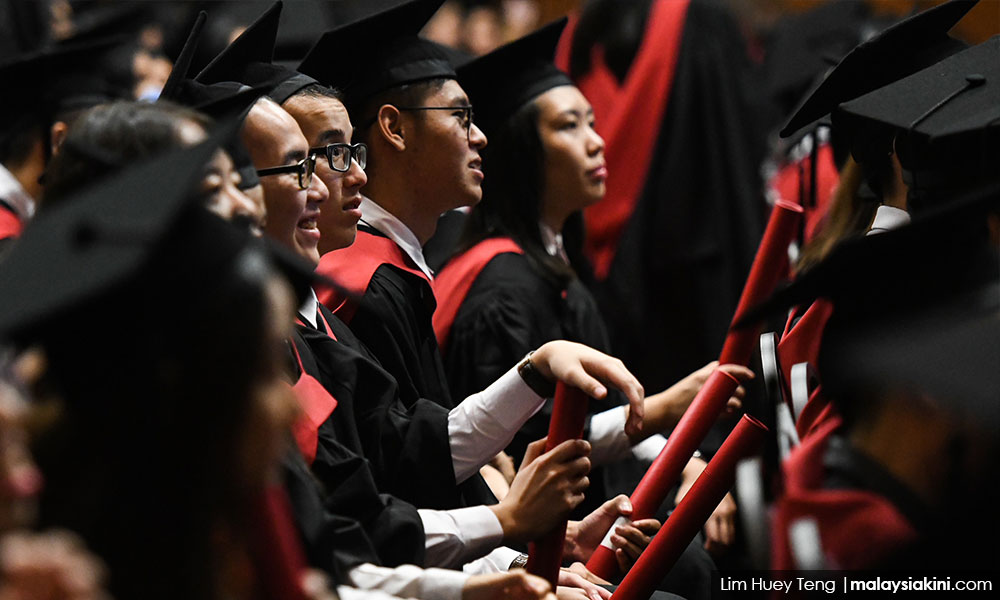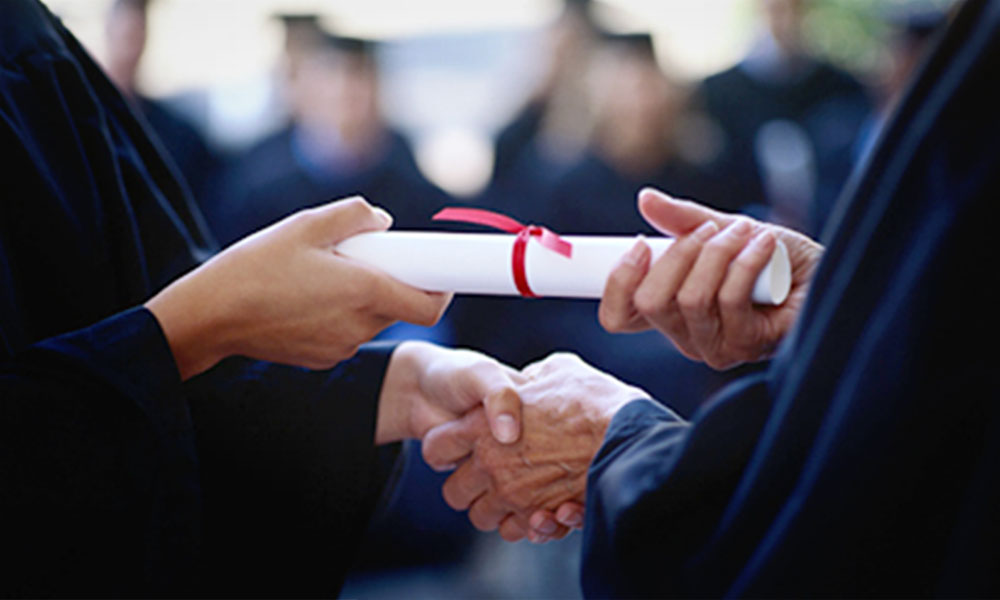Malaysia's universities should stop measuring prestige and start measuring progress. More importantly, our government and higher education stakeholders should understand what the difference is.
Graduation rates in our university data systems are used to measure student progress in our society.
Also, global ranking agencies like Times Higher Education (THE), Quacquarelli Symonds (QS) and the Shanghai Ranking Consultancy (or the Academic Ranking of World Universities, AWRU) assign prestige ratings to universities around the world via university “inputs”.
These include the infrastructure that a university has, their sources of research funds, the size of these endowments and that amorphous thing called “international reputation”.
This begs the question, what should this reputation be based on? If we are to rank any university in Malaysia, it should be based primarily on the quality of teaching, and the kind of research and publications that are produced by that university’s scholars.
Furthermore, quality here should refer to how relevant the academic output is, for the current challenges facing our society.
This is not captured in QS, THE or ARWU data systems. Yet, the world is fixated on metrics generated by these agencies, leaving little intellectual commitment to the more important task of academic relevance.
This relevance is reflected in the syllabi used in classrooms, the choice of problems selected for research projects, and the themes highlighted in journal articles and books published that both decision-makers and the ordinary public can relate to.
Malaysian academics should teach, do research, write and publish relevant themes that contribute directly to the country’s human development, and not only to its economic and financial progress.
Difficult questions
If we sincerely want to reform our universities and the nation’s education system, we must ask the following difficult questions which help us see the bigger picture.
What has education done “to” us? Are we happy with what we have achieved as a nation? Is the country going in the right direction?
How has our university education helped us understand “evil”, such as corruption? Or is evil conceptualised only in terms of religion and punishment in the afterlife? Has education helped us improve our ethical selves?

Is there more social solidarity in the country? Do we know the difference between the acquisition of skills (eg application of mathematical skills in an engineering project) and the acquisition of knowledge?
Let us focus on the last question. The acquisition of skills learnt in a university is not enough to become a successful and contented human being. Focusing merely on this would be the failure of higher education, as we are experiencing currently. We must understand that the acquisition of knowledge is far superior to skills learnt.
Information vs knowledge
Knowledge teaches us how to communicate properly, the virtue of compassion, to acknowledge that humanity is a servant of the environment (not the other way around), that the earth’s resources are finite and that information overload weakens the power of judgement of all humans.
Herein lies the Malaysian educational paradox: the inability to know the difference between information and knowledge. Among the social scientists in our universities today, it would be difficult to establish a high regional or global reputation due to this conundrum.
Therefore, the Higher Education Ministry needs to address another important question. It is the ultimate question that students, parents, and taxpayers care about.
The question is, what are the student outcomes valued in our national education philosophy (the other New Economic Policy)? Our national education philosophy (which includes higher education) is one long paragraph, with a series of sentences linked by many commas and with only one intermediary full stop. It states:
“Education in Malaysia is an ongoing effort towards further developing the potential of individuals in a holistic and integrated manner, so as to produce individuals who are intellectually, spiritually, emotionally and physically balanced and harmonious, based on a firm belief in and devotion to God.
"Such an effort is designed to produce Malaysian citizens who are knowledgeable and competent, who possess high moral standards, and who are responsible and capable of achieving a high level of personal well-being as well as being able to contribute to the harmony and betterment of the family, the society and the nation at large.”

Let us look at four key ideas from this philosophy. These are “intellectually balanced”, “knowledgeable”, “high-level of personal well-being” and “betterment of society”.
In a nutshell, most Malaysians have understood these to mean the ability of students to attain skills learnt in class, to eventually graduate and to land the desired job and salary, commensurate with the type of degree earned.
To summarise, the majority of Malaysians believe that a quality education will provide the coveted economic and financial stability for the rest of their lives.
Quality education for a good life
Ideally though, this segment of our national education philosophy should be conceptualised within the larger ethos of progress, rather than within the narrow confines of “development”.
This would commit universities and their academics to focus more on nurturing a citizenry who would eventually retire as satisfied, happy, and content Malaysians. The ultimate goal of any quality education is a good life, not a good livelihood.
This gives more meaning to the notion of holistic development, whereby contentment is not merely based on job satisfaction or the size of one’s bank account. Instead, a good education is manifest in social solidarity, which in turn influences one’s retired life and promotes the “good life” all around.
Social solidarity goes beyond accepting different races, religions and cultures within a nation’s borders.
It also includes a collective commitment to ethical behaviour, a pollution-free atmosphere, clean streets, unclogged drains, and efficient public transportation. Add to this the love for a healthy lifestyle of eating good food (and not copious amounts of food), regular exercise, and consistent community engagement.

Most importantly, all Malaysians must feel a sense of belonging to the nation. It is the moral duty of every citizen, including those in government, to instil this feeling in one another. It is this kind of knowledge that one should also focus on, in a higher educational milieu.
Additionally, we must feel that our opinions matter because we have the right of citizenship. Dignity is restored to a people if they can feel that their grievances are taken seriously by the three branches of government. This is achieved only if we have a transparent and accountable government, both of which are currently on shaky ground.
It's not just about money
It is disappointing that a trendy interpretation of our educational philosophy is preferred, through the conceptualisation of economic symbols.
For example, universities provide a “service” to satisfy customer demands, which are in turn dictated by market forces. Students (customers) graduate to become the nation’s social capital.
The danger of this preferred interpretation of our educational philosophy is that we remain stuck in the economic ethos of higher education.
Bear in mind too that market forces are dictated by the rich and developed countries, which have monopolised global knowledge production trends. Often, such trends are not relevant in the Malaysian context.
A more sustainable interpretation would be to pay equal attention to personality development and social solidarity.
A re-interpretation of our educational philosophy would allow us to better work towards a more consistent social transformation and sustainable progress. It provides educators with the knowledge needed to nurture a truly just society.
Such an educational philosophy would produce more Malaysians who are kind, selfless, happy and contented as they inch further into their sunset years of retired life. - Mkini
SHARIFAH MUNIRAH ALATAS is an academician with zero tolerance for corrupt, arrogant and frivolous leadership.
The views expressed here are those of the author/contributor and do not necessarily represent the views of MMKtT.



No comments:
Post a Comment
Note: Only a member of this blog may post a comment.